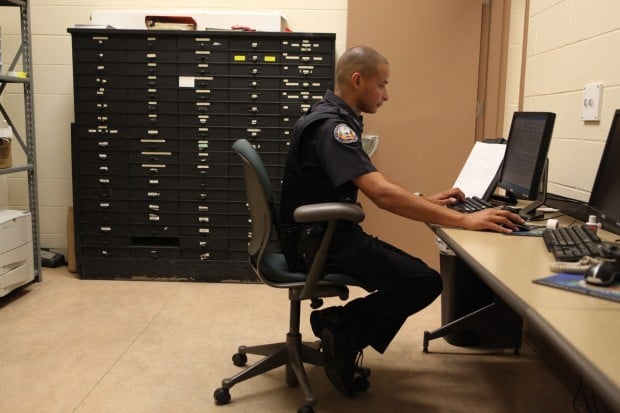
Police should provide advice to victims about what they should do if the accused breaches their bail conditions. Police will inform the victim of the outcome of any bail application, especially if the accused has been charged with sexual assault or any other serious personal violence offence. It is important for victims to know at the outset that when they make a statement and the accused is charged, there is a presumption that the victim will be required to go to court to give evidence. Police should inform the victim of the decision to proceed or not proceed with an investigation.
Kept in custody (also known as on remand) until the matter goes before a court. Bail conditions can be imposed on the accused by the court and if the accused does not comply with those conditions, police can arrest the accused for breach of bail. If a victim or witness fears for their safety the police will inform the prosecutor who will ensure that the court takes this into account when assessing the bail application. Released with a Court Attendance Notice (CAN), which is a written direction for the accused to attend court on a particular day to answer a charge or an order against them. Once an offender is arrested and charged they are then known as the accused and will be either: The only exception is if the victim indicates that they do not wish to be consulted. Inform the victim of the outcome of the criminal proceedings against the accused and the sentence (if any) imposed.įor serious charges where the accused has been charged with a crime that involves sexual violence, results in actual bodily harm and/or results in mental illness to the victim, the victim must be consulted before any decision is made to modify or not to proceed with charges laid against the accused. Inform the victim of the date and place of hearing of any charge laid against the accused. The certificate must verify that there has been consultation with the victim or set out good reason why consultation could not occur, such as the victim declining to speak to police, the victim cannot be located or the victim is deceased From 2 December 2011, courts cannot accept a negotiated plea of guilty to an alternative charge where there are agreed facts unless a certificate has been filed with the court.  In criminal prosecutions involving the NSW Office of the Director of Public Prosecutions (ODPP), a representative of the ODPP will advise the victim, in lieu of the police of any decision of the prosecution to modify or not proceed with charges laid against the accused (including any decision to accept a plea of guilty by the accused to a less serious charge upon the promise of the accused pleading guilty to another charge or charges). Inform the victim of any decision of the prosecution to modify or not proceed with charges laid against the accused (including any decision to accept a plea of guilty by the accused to a less serious charge upon the promise of the accused pleading guilty to another charge or charges). Inform the victim of the charges laid against the accused or the reasons for not laying charges. Victims need to advise police of any changes to their contact details so that police can maintain contact with them Keep the victim informed of the progress of the investigation, unless the disclosure might jeopardise the investigation, in which case, the victim will be informed accordingly. A statement is a typed record of what happened in the victims own words
In criminal prosecutions involving the NSW Office of the Director of Public Prosecutions (ODPP), a representative of the ODPP will advise the victim, in lieu of the police of any decision of the prosecution to modify or not proceed with charges laid against the accused (including any decision to accept a plea of guilty by the accused to a less serious charge upon the promise of the accused pleading guilty to another charge or charges). Inform the victim of any decision of the prosecution to modify or not proceed with charges laid against the accused (including any decision to accept a plea of guilty by the accused to a less serious charge upon the promise of the accused pleading guilty to another charge or charges). Inform the victim of the charges laid against the accused or the reasons for not laying charges. Victims need to advise police of any changes to their contact details so that police can maintain contact with them Keep the victim informed of the progress of the investigation, unless the disclosure might jeopardise the investigation, in which case, the victim will be informed accordingly. A statement is a typed record of what happened in the victims own words 
Provide the victim with a copy of their statement.If police proceed with an investigation they will: Police will determine whether an investigation should be continued based upon the nature and circumstances of the offence, the chances of solving the crime, victim needs and community needs. Allowing police to conduct forensic examinations of crime scenes can assist in the criminal investigation process and influence the outcome at court. Protection orders are available to ensure the protection of victims.

Usually uniformed police will be the first to attend the scene of a crime and in some instances the matter will be referred to detectives who will take charge of the investigation.ĭuring the initial investigation police will interview victims, witnesses, record details, assess the victims need for protection and collect physical evidence. The investigation of a crime can take weeks, months or even longer depending upon the amount and type of evidence required to complete the investigation.

One of the main roles of the NSW Police Force is to detect and investigate crime and prosecute offenders.








 0 kommentar(er)
0 kommentar(er)
